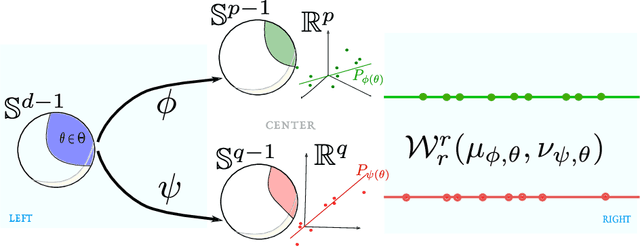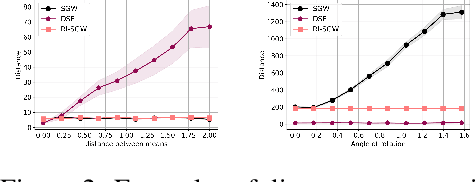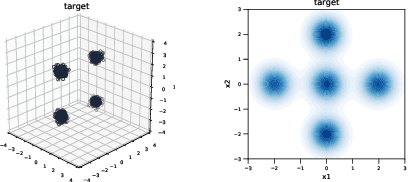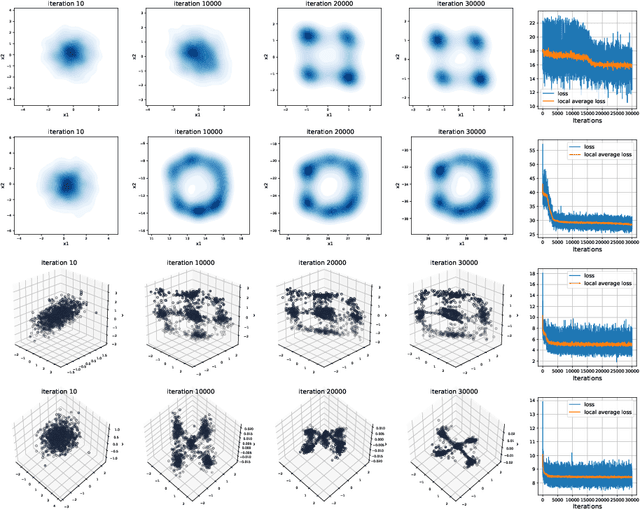Distributional Sliced Embedding Discrepancy for Incomparable Distributions
Paper and Code
Jun 04, 2021



Gromov-Wasserstein (GW) distance is a key tool for manifold learning and cross-domain learning, allowing the comparison of distributions that do not live in the same metric space. Because of its high computational complexity, several approximate GW distances have been proposed based on entropy regularization or on slicing, and one-dimensional GW computation. In this paper, we propose a novel approach for comparing two incomparable distributions, that hinges on the idea of distributional slicing, embeddings, and on computing the closed-form Wasserstein distance between the sliced distributions. We provide a theoretical analysis of this new divergence, called distributional sliced embedding (DSE) discrepancy, and we show that it preserves several interesting properties of GW distance including rotation-invariance. We show that the embeddings involved in DSE can be efficiently learned. Finally, we provide a large set of experiments illustrating the behavior of DSE as a divergence in the context of generative modeling and in query framework.
 Add to Chrome
Add to Chrome Add to Firefox
Add to Firefox Add to Edge
Add to Edge